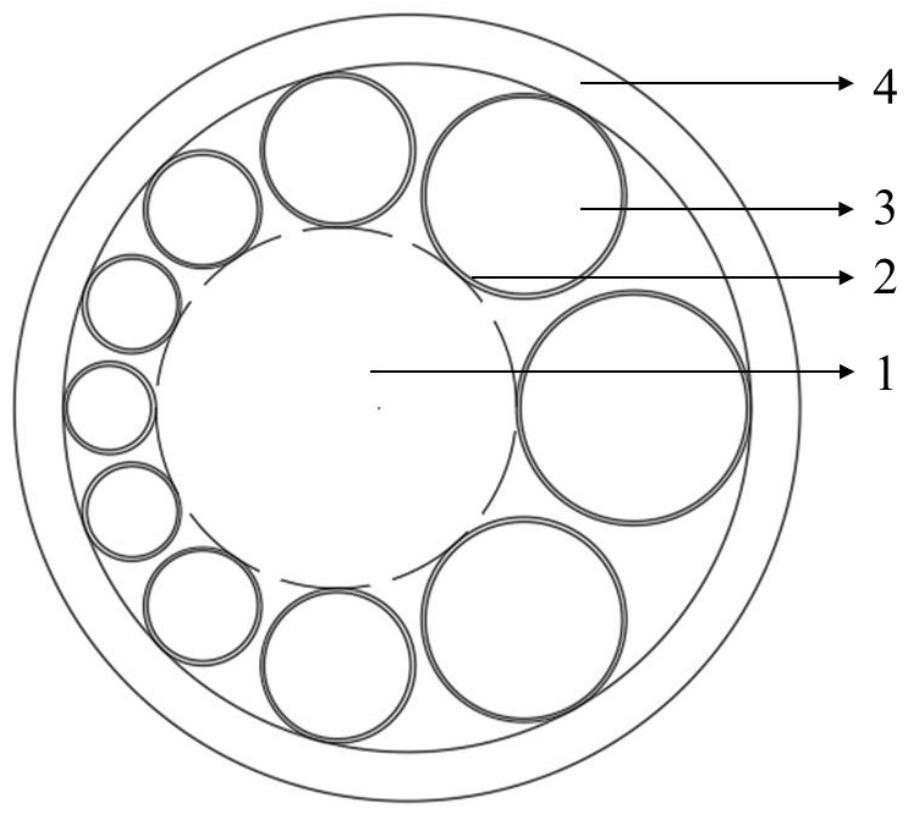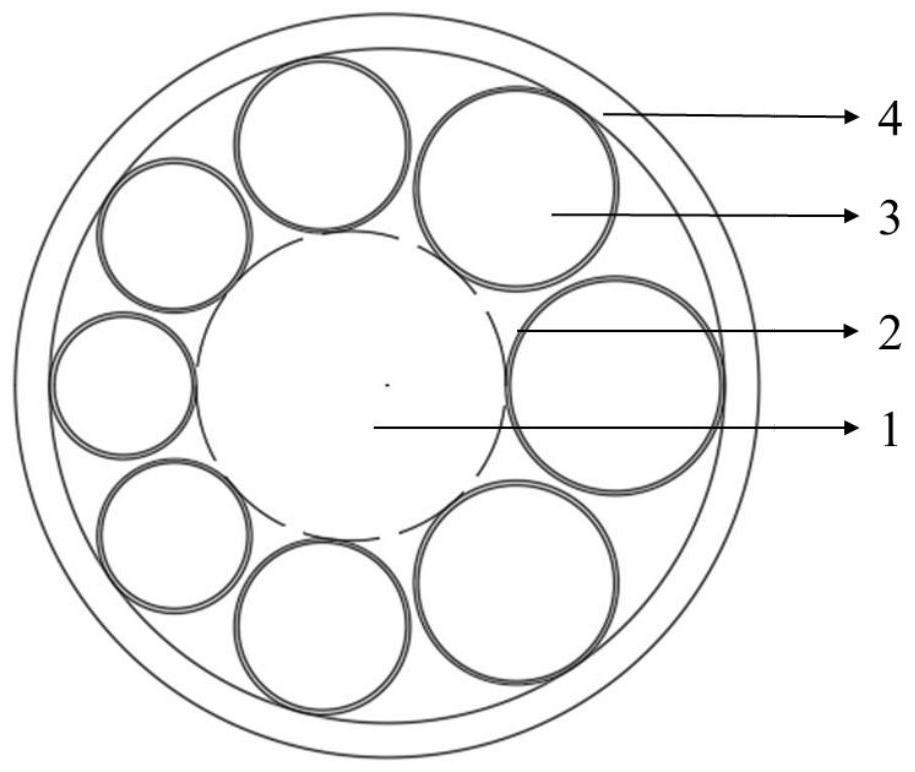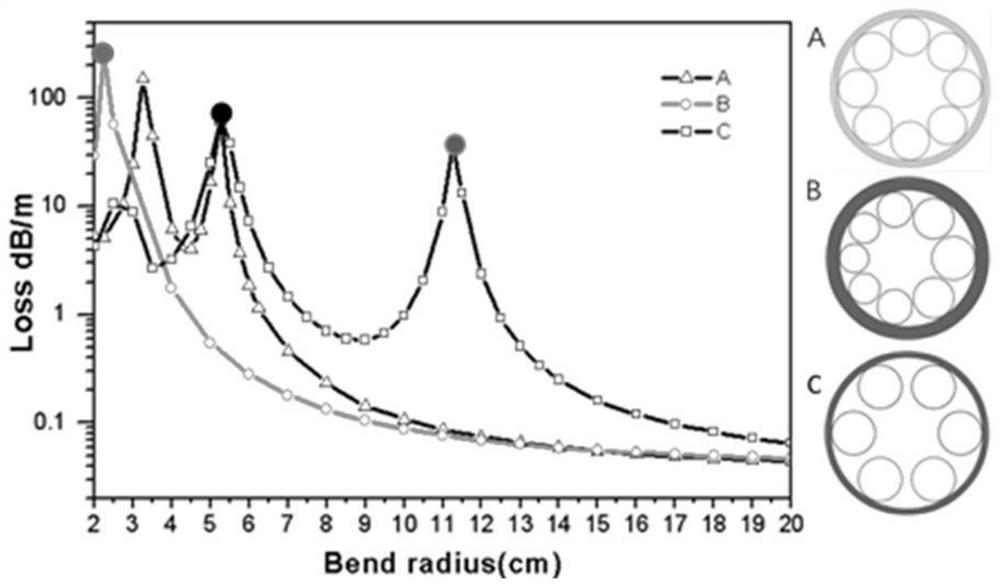An anti-resonant optical fiber with both single-mode transmission and low bending loss
A bending loss and anti-resonance technology, applied in multi-layer core/clad fibers, clad fibers, optics, etc., can solve the problem of not being able to ensure low bending loss and quasi-single-mode transmission at the same time, and achieve good dispersion control characteristics , the effect of low bending loss and high damage threshold
- Summary
- Abstract
- Description
- Claims
- Application Information
AI Technical Summary
Problems solved by technology
Method used
Image
Examples
Embodiment 1
[0027] Such as figure 1 As shown, a graded-cladding eccentric hollow-core antiresonant fiber with 10 thin-walled tubes is shown, where the ratio of the largest thin-walled ring diameter to the core is 0.65, and the smallest ratio of the thin-walled ring diameter to the core diameter is 0.3. Each thin-walled tube is separated by a distance of 6 wall thicknesses. The core circle is tangent to all thin-walled tubes.
[0028] In this embodiment, the core region may be liquid, gas or vacuum.
[0029] In this embodiment, the high refractive index thin-walled tube and the outer cladding are silicon dioxide, doped glass, photosensitive resin or plastic.
Embodiment 2
[0031] Such as figure 2 As shown, a graded cladding eccentric hollow-core antiresonant fiber with 8 thin-walled tubes is shown, in which the ratio of the largest thin-walled ring diameter to the fiber core is 0.7, and the ratio of the smallest thin-walled ring diameter to the fiber core diameter is 0.45. Each thin-walled tube is separated by a distance of 5 wall thicknesses. The core circle is tangent to all thin-walled tubes.
[0032] In this embodiment, the core region may be liquid, gas or vacuum.
[0033] In this embodiment, the high refractive index thin-walled tube and the outer cladding are silicon dioxide, doped glass, photosensitive resin or plastic.
[0034] Such as image 3 As shown, the figure shows the second embodiment of the present invention-the cladding graded eccentric hollow-core anti-resonance fiber of 8 thin-walled tubes and the traditional symmetrical 8-thin-walled tube and 6-thin-walled tube hollow-core anti-resonant fiber bending Simulation compari...
PUM
 Login to View More
Login to View More Abstract
Description
Claims
Application Information
 Login to View More
Login to View More - R&D
- Intellectual Property
- Life Sciences
- Materials
- Tech Scout
- Unparalleled Data Quality
- Higher Quality Content
- 60% Fewer Hallucinations
Browse by: Latest US Patents, China's latest patents, Technical Efficacy Thesaurus, Application Domain, Technology Topic, Popular Technical Reports.
© 2025 PatSnap. All rights reserved.Legal|Privacy policy|Modern Slavery Act Transparency Statement|Sitemap|About US| Contact US: help@patsnap.com



